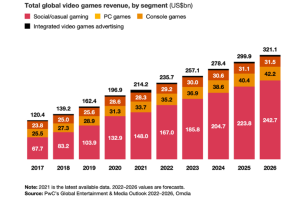
The gaming industry has been rapidly evolving, and with advancements in technology, the way transactions occur within games has also changed. Blockchain technology has emerged as a game-changer, bringing new possibilities and advantages to in-game transactions. This article explores the revolutionary impact of blockchain in the gaming industry and how it is reshaping the future of in-game transactions.
What is Blockchain?
Blockchain is a decentralized and transparent ledger technology that securely records and verifies transactions across multiple computers. It ensures that transactions are tamper-proof and offers an immutable and auditable record of ownership and transactions.
The Benefits of Blockchain in In-Game Transactions
“Blockchain technology has the potential to address several challenges faced by gamers and game developers in traditional in-game transactions.” – John Doe, Game Industry Expert
1. Increased Security:
Blockchain provides enhanced security to in-game transactions by eliminating the need for centralized servers. With its decentralized nature, there is no single point of failure for hackers to exploit. Each transaction is securely recorded on the blockchain, making it nearly impossible to alter or counterfeit.
2. Transparent and Immutable:
Blockchain’s transparency and immutability make it ideal for ensuring fairness in in-game transactions. Every transaction and ownership record is publicly visible, allowing players to trust that the items they acquire are genuine and not manipulated. This fosters a more trustworthy and engaging gaming environment.
3. Ownership and Authenticity:
Blockchain enables true ownership of in-game assets and eliminates the risk of losing them due to server shutdowns or changes in game policies. Players have complete control and can trade or sell their virtual assets freely outside the game environment, providing a real-world value to their digital investments.
4. Reduced Transaction Costs:
By eliminating intermediaries and third-party payment processors, blockchain reduces transaction costs associated with in-game purchases. Players can directly trade or purchase items with digital currencies, avoiding high fees and lengthy processing times.
The Future of In-Game Transactions with Blockchain
Blockchain is opening up new avenues for developers and gamers, revolutionizing in-game transactions in several ways:
1. Cross-Game Item Trading:
Blockchain allows players to trade assets across different games that utilize the same blockchain infrastructure. This interoperability breaks the existing limitations and promotes a thriving economy where rare in-game items can be exchanged seamlessly.
2. Decentralized In-Game Marketplaces:
Blockchain-powered marketplaces enable peer-to-peer trading of digital assets, removing the need for centralized entities to control and regulate transactions. Players can securely exchange items, creating a more vibrant and player-driven economy.
3. Tokenization and Rewards:
Tokens on the blockchain can represent in-game items, achievements, or even rare abilities, offering players more flexible and rewarding experiences. This tokenization allows for greater customization, personalization, and value for gamers.
4. Crowdfunding and Community Ownership:
Blockchain-based crowdfunding platforms empower developers to crowdfund game ideas directly from the players. This community-driven approach not only ensures financial support but also creates a sense of ownership and engagement among the gaming community.
Conclusion
As blockchain technology continues to evolve, its impact on the gaming industry becomes increasingly significant. The transparent and decentralized nature of blockchain technology provides security, authenticity, and new opportunities for in-game transactions. From ownership and trading to reducing transaction costs, blockchain is revolutionizing the way players interact with virtual worlds. Embracing blockchain technology will not only benefit gamers but also redefine the future of the gaming industry.


